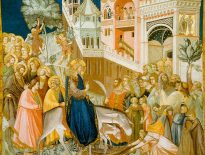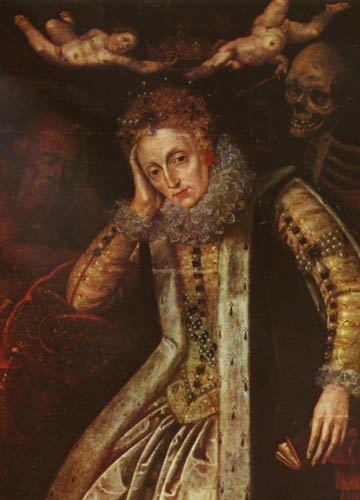"The past is a foreign country", so says the blurb for Ian Mortimer’s “Time Traveller's Guide” series of books, and it's so true. One of the things that people find it hard to understand, when looking at the lives of medieval and Tudor people, is the role of religion in their daily lives, just how central it was to everything.
In this week's Claire Chats talk, I go into this and attempt to give you a little more insight into the lives of these people.
Other videos of interest:
Sources and Further Reading
- Church in the Middle Ages: from dedication to dissent - https://www.bl.uk/the-middle-ages/articles/church-in-the-middle-ages-from-dedication-to-dissent#
- Medieval religion - http://www.medieval-life-and-times.info/medieval-religion/
- Religion in the Middle Ages - http://www.thefinertimes.com/Middle-Ages/religion-in-the-middle-ages.html
- Religion in the Middle Ages, BBC - https://www.bbc.com/bitesize/guides/znjnb9q/revision/2
- Medieval Religion - https://www.english-heritage.org.uk/learn/story-of-england/medieval/religion/
- Helen Castor’s series “Medieval Lives: Birth, Marriage, Death”
Helen Castor's series:
https://youtu.be/mygtqHjXT-A




Thanks Claire, for this very interesting overview of the key role that religion played in the daily lives of Tudor people. Its great perspective, and reminds us that they naturally viewed decisions and events quite differently than us..
Hot lemon with honey and whisky or honey and lemon and garlic to gargle with.
Well done, soldiering on with a bad cough, tyme and rosemary is also very good for a cough.
The hours were literally tolled out and various prayers go with every hour, every season change. the harvest and saints days and every church was full of colour and the living Bible stories. As you say the Ave Maria, Paternoster, the Sacraments, all of the hours and so on weaving into the day. You even had your animals blessed and you blessed the crops. The prayer role of Henry Viii was shown on the series Henry Viii, Mind of a Tyrant. Childbirth, baptism, death, marriage, even when you had sex inside of marriage were laid down as rules, for example during Lent. What you ate and how you lived had religious rules and it was important to make a good death. Helen Castor explained marriage, birth and death very well and also Eamon Duffy explained the hours in his beautiful book Striking the Hours.
Everyone who died in grace, or at least not excommunicated, were buried with services for the dead and care of the soul was a religious duty and if a monk or priest came upon a body on the road, they would claim them for burial. This is how we know claims that Richard iii was buried without ceremony is utter nonsense. His body was laid out in a Church so he would have been prayed for, that he wasn’t is not possible. His body was given to the Greyfriars who supported his House for burial, his body was placed in the centre of the Quire, before the High Alter, in the place of honour, not just dumped anywhere. Yes, the grave was a bit too short but that means nothing. His hands were crossed, not bound at burial, even if they were earlier and some recent evidence says he was buried in a Franciscan habit. The Friars would have sung the Office of the Dead and closed his grave. Later a Mass would have been sung, but the Tudor King had moved on so it wasn’t recorded. We don’t know if his grave was inscribed or not but a floor stone would have marked it. However, we know it was marked because a tomb was built in 1497 and no doubt a ceremony held. For every single day from 1485 until the Friary was closed in 1540, several times a day, Mass or other services would have been said and the King prayed for as to the repose of his soul. Even if he had the most simple of ceremonies, there is no way he would not have been buried without one. Even if armed soldiers ordered the monks not to, they would have done so afterwards. It was a Christian duty to pray for the souls of the dead and Henry Tudor was aware of that and had plenty said for his own soul. The dead on a battlefield were technically excommunicated, but most would be shriven before hand and extended grace in a Battlefield Church. Chantry priests prayed for their souls and many important people killed in Battle were placed in monastic chapels. King Henry vi was buried in a monastery after his mysterious death in 1471 and he was moved by Richard iii to his resting place in Windsor. The son of Henry vi was buried in the Abbey at Tewkesbury.
The ordinary soldier had to share mass graves but as I have said many may later be moved to a Battlefield Church or at least they were prayed for and remembered there. As Claire points out the monasteries provided care for the sick and infirm, plays and education, welfare, farms for tenants who sustained the monasteries, places for outcasts in society and an example of the beauty of heaven. It was an extraordinary time, cut short by the Reformation, forced upon a people who didn’t want it.
Enjoyed the presentation and the resources listed…so very wonderful to learn from Claire!